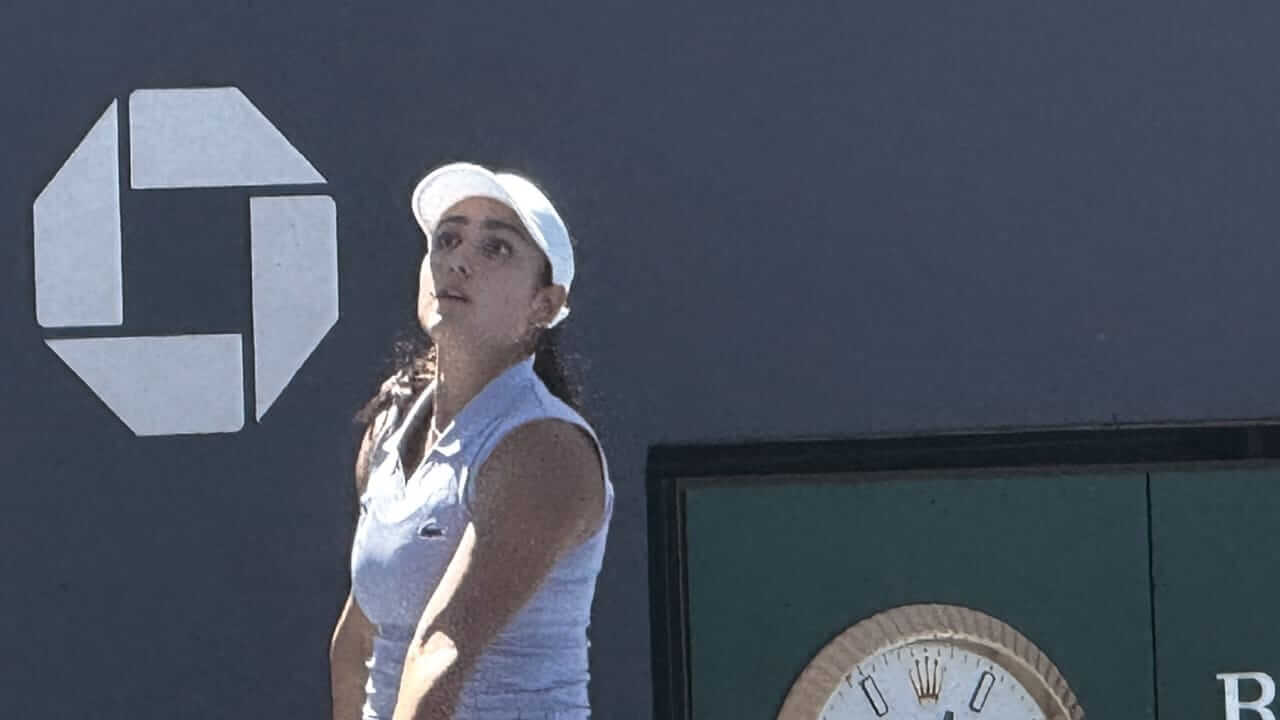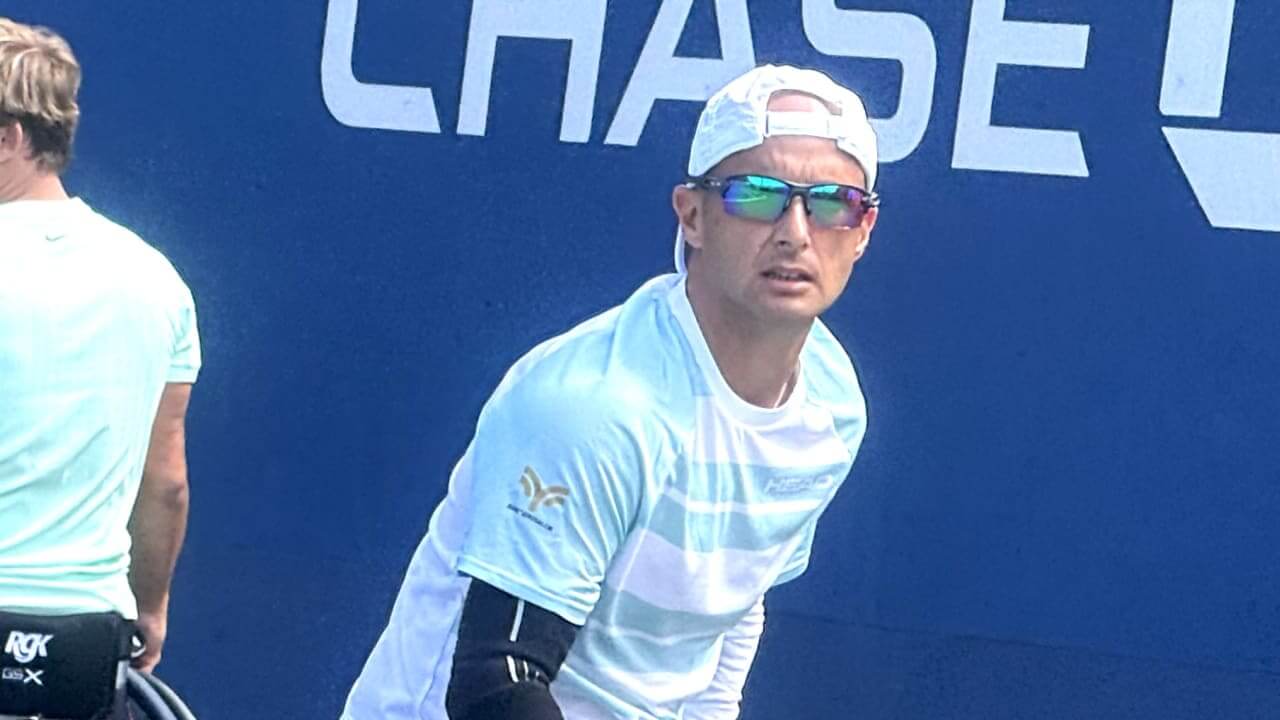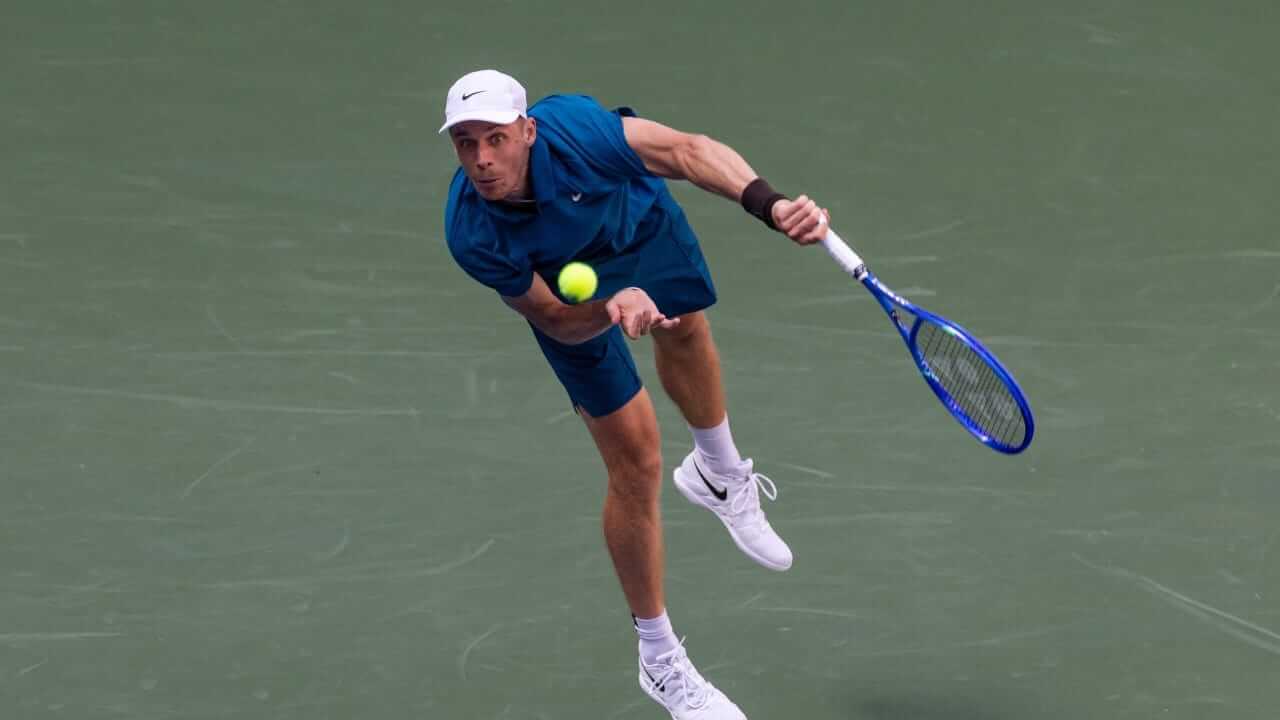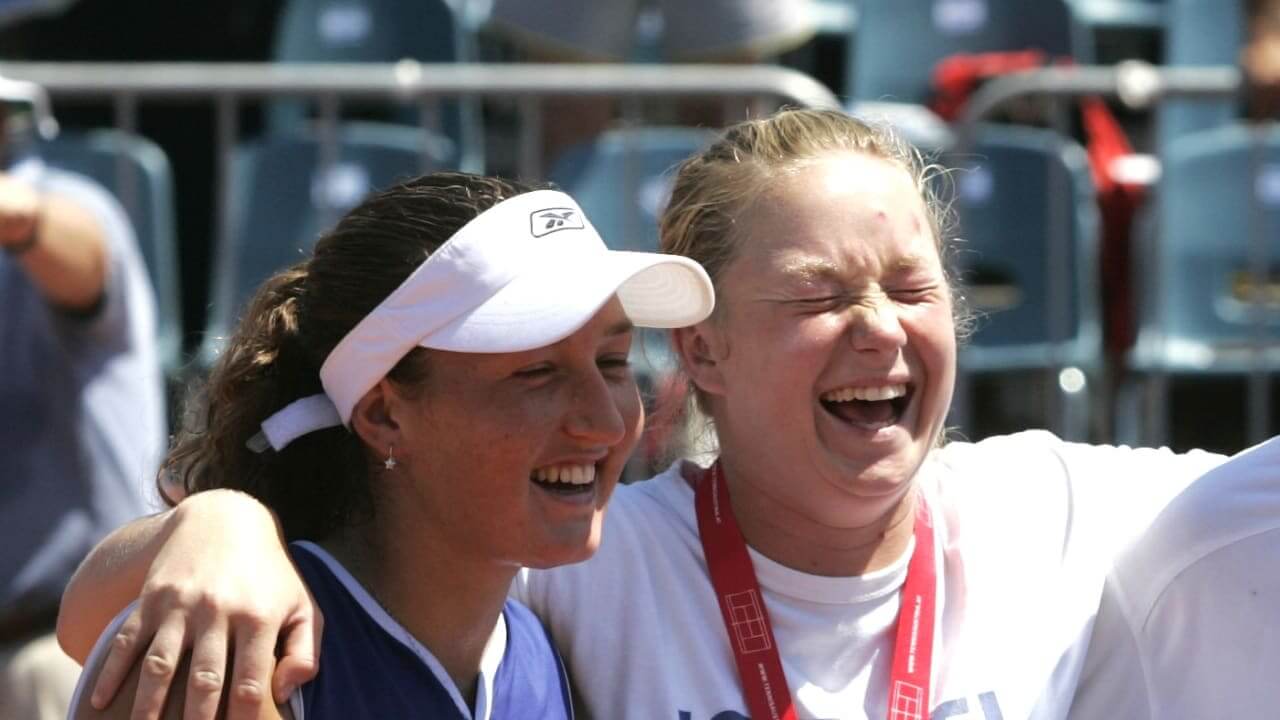Originally posted in Jerusalem Post, September 4 2025
Mika Buchnik has reached WTA career-high rankings of 843 in singles and 1009 in doubles, has competed at three Junior Grand Slams – Wimbledon, Roland Garros, and the Australian Open.
When Mika Buchnik was playing in the Wimbledon girls’ singles tennis tournament in July, going to college in the United States was the furthest thing from her mind. The 18-year-old Tel Aviv resident, currently ranked No. 35 in the world for juniors after reaching a high of No. 18 in February 2025, was training at the Rafael Nadal Academy in Mallorca, Spain, and competing in tournaments around the world.
As of one week ago, Buchnik is a resident of Norman, Oklahoma, and a member of the Oklahoma Sooners women’s tennis team.
Her bio on the team’s website notes that Buchnik has reached WTA career-high rankings of 843 in singles and 1009 in doubles, has competed at three Junior Grand Slams – Wimbledon, Roland Garros, and the Australian Open – and has captured eight titles on the junior circuit. In addition, it highlights that she is the first Israeli to win a J500 singles title, claiming the Osaka Mayor’s Cup in Japan.
Competing in the US Open
Buchnik arrived in Oklahoma, quickly settled into her dorm, and started classes, then headed to New York where she is competing in the US Open juniors singles and doubles tournaments.
“The first week was very, very intense! I had a lot of things to do!” she said.

She intends to study business but admits she doesn’t remember the names of her classes and was unable to enroll in certain courses due to her late arrival on campus. She is not particularly worried about studying in English. Her father, Golan, playfully noted that she will have a much easier time than he did, given his own difficulties with the language.
Buchnik, the only Israeli in any of the main draws other than the wheelchair events, spoke with The Jerusalem Post in the Media Garden following her straight-sets loss on Sunday to No. 1 seed Julieta Pareja, 6-3, 6-1. She also played in the doubles draw with Argentinian Sol Allin Larraya Guldi against No. 2 seeds Kristina Penickova of the USA and Mika Stojsavijevic of Great Britain. Buchnik and Guldi lost the first set 6-2, but came back with 7-6(6) win the second, before ultimately falling 10-7 in the third-set tie-break to get ousted.
Buchnik was not interested in discussing her hour and 18-minute match, where her first serve averaged 93 mph and she committed fewer unforced errors than her opponent. But she is aware that Jewish and Israeli fans are drawn to her matches and feel pride seeing “Israel” on the draw sheet and scoreboard.
Yedidya Schechter, a fourth-time ballperson and member of the Yeshiva University tennis team, stopped by between matches to watch Buchnik.
“It is beautiful to be able to see Israel, a small country and our home, represented in a sports competition like this. It is inspirational seeing an Israeli in a Grand Slam event.”
Buchnik reports that she has not encountered antisemitism or anti-Israel sentiment and plays wearing her yellow “Bring Them Home Now” bracelet.
She shared details of her evolution from training at the Dudi Sela Tennis Academy in Tel Aviv, to the Rafael Nadal Academy in Spain, to her new role as a student-athlete at the University of Oklahoma, a school she committed to without ever visiting.
“I wasn’t thinking at all about going to college. As time passed, I realized my tennis wasn’t where I wanted it to be, so going to college was the right decision. It will allow for more time for tennis, which is the main thing in my life.”She is looking forward to being part of a team.
“Tennis is very individual. I needed something more – more of a team.”
She also knows that she will be able to compete in other tournaments around the world in the off-season.
The Post had spoken with Buchnik at Wimbledon, where she was reportedly being scouted by colleges such as the University of Tennessee, Texas A&M, and the University of Virginia. Ultimately, she decided to accept an offer from the University of Oklahoma.
“It is a good atmosphere, a great team and a great coach,” said Buchnik. The women’s team is coached by Jewish coach and former professional tennis player Audra Cohen, who has been at the helm since 2016. Cohen has led the Sooners to a 162-66 record, with 27 all-conference honors. Fellow Israeli Orel Kimhi joined the Oklahoma men’s tennis team in January 2025.
Her father, Golan, is pleased with Mika’s decision to play college tennis.
“Playing college tennis in Oklahoma and with Audra is good for Mika. It is a very good team and can help her on the road to the pros.”
He quickly pointed out that Oklahoma is a top-10 team, which he believes will be a big help as Mika continues to develop as a player. He also said he is not worried about Mika being Jewish or Israeli on a campus like the University of Oklahoma.
“She will have no problems in Oklahoma.”
Buchnik had long trained at the Dudi Sela Tennis Academy in Tel Aviv. Sela, a former world No. 29, coached her and traveled with her to tournaments such as the US Open. She was offered an opportunity to train at the Rafael Nadal Academy in Spain for one week, and she enjoyed it so much that she decided to continue training there.
One of her coaches at the Nadal Academy, Polina Radeva, watched her first-round US Open match. Radeva described Buchnik as “very determined, hardworking and very proactive.”
She noted that Buchnik is the type of player who “demands from you before you can demand from her.”
Radeva admitted that she and the Nadal team were a bit surprised by how quickly Buchnik changed course and decided to leave Spain to go to college.
“It was very spontaneous! Three weeks ago, we were at a tournament in Romania together. She went back to Israel then decided to go to college.”
Buchnik currently has a one-year deferment from the Israel Defense Forces (IDF). With her siblings aged 14 and 11, no Buchnik children are currently serving in the IDF.
For now, after focusing her attention on the US Open, it’s back to Oklahoma, where she will be one of roughly 8,800 Jews in a state of 4.1 million residents. Her small neighborhood in Tel Aviv has more Jewish residents.




